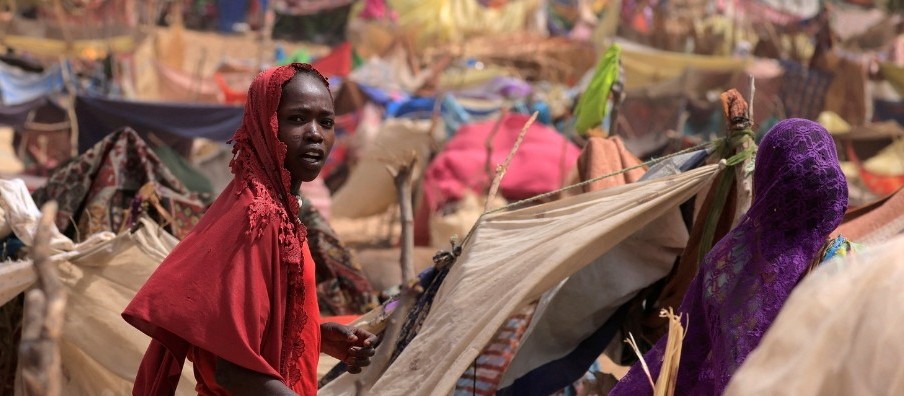A UN fact-finding mission reported Friday that Sudan’s warring parties have committed an “appalling range of human rights violations and international crimes,” including numerous acts that could be classified as war crimes and crimes against humanity.
According to the report seen by Radio Tamazuj, both the Sudanese Armed Forces (SAF) and the Rapid Support Forces (RSF), as well as their respective allies, were found to be responsible for patterns of large-scale violations, including indiscriminate and direct attacks carried out through airstrikes and shelling against civilians, schools, hospitals, communication networks and vital water and electricity supplies.
The fact-finding mission pointed out that the warring parties also targeted civilians – as well as those assisting survivors or documenting violations – through rape and other forms of sexual violence, arbitrary arrest and detention, as well as torture and ill-treatment. These violations may amount to war crimes related to violence to life and person and committing outrages upon personal dignity, the report stated.
“The gravity of these findings underscores the urgent and immediate action to protect civilians,” said Mohamed Chande Othman, Chair of the Fact-Finding Mission.
“Given the failure of the warring parties to spare civilians, it is imperative that an independent and impartial force with a mandate to safeguard civilians be deployed without delay,” Othman said. “The protection of the civilian population is paramount, and all parties must comply with their obligations under international law and immediately and unconditionally cease all attacks on the civilian population.”
The report also found “reasonable grounds” to believe that RSF and its allied militias committed the additional war crimes of rape, sexual slavery, and pillage, as well as ordering the displacement of the civilian population and the recruitment of children below 15 in hostilities. Horrific assaults carried by the RSF and its allies against non-Arab communities – in particular the Masalit in and around El Geneina, West Darfur – included killings, torture, rape and other forms of sexual violence, destruction of property and pillage.
Moreover, there are also “reasonable grounds” to believe that acts committed by the RSF and its allied militias amount to numerous crimes against humanity, including murder, torture, enslavement, rape, sexual slavery, other sexual violence of comparable gravity, persecution on the basis of ethnic and gender targeting, and forcible displacement.
The conflict, which has spread to 14 of the 18 states in Sudan, has killed and wounded tens of thousands of civilians, displaced nearly 8 million people and forced two million more to flee to neighboring countries. The warring parties have exacerbated the crisis by obstructing humanitarian access, the report said.
“The people of the Sudan have suffered unimaginable tragedy,” said Expert Member Joy Ngozi Ezeilo. “A sustainable ceasefire must be prioritized to halt the fighting in which the civilian population is caught and enable the effective delivery of badly needed humanitarian assistance to all those in need, regardless of their location.”
Recommendations
The report recommended expanding the existing arms embargo in Darfur pursuant to Security Council Resolution 1556 (2004) and subsequent resolutions, to all Sudan to stem the supply of weapons, ammunition, and other logistical or financial support to the warring parties and prevent further escalation. Those supplying arms, the report warned, may be complicit in grave violations of human rights and humanitarian law.
It also called on Sudanese authorities to cooperate fully with the International Criminal Court (ICC), and surrender all indicted persons, including former President Al Bashir.
The report also called for the establishment of a separate international judicial mechanism working in tandem and complementary to the ICC.
“These findings should serve as a wake-up call to the international community to take decisive action to support survivors, their families and affected communities, and hold perpetrators accountable,” said Expert Member Mona Rishmawi. “A comprehensive approach to transitional justice is vital for addressing the root causes of the conflict and ensuring accountability.”
The report, commissioned by the Human Rights Council when it established the mission in October 2023, is based on investigations conducted from January to August 2024. This includes visits to Chad, Kenya, and Uganda, direct testimony from 182 survivors, family members, and witnesses, and extensive consultations with experts and civil society.
In December 2023, the President of the Human Rights Council appointed Mohamed Chande Othman, as the Chair of the Fact-Finding Mission and Joy Ngozi Ezeilo and Mona Rishmawi as Members.




